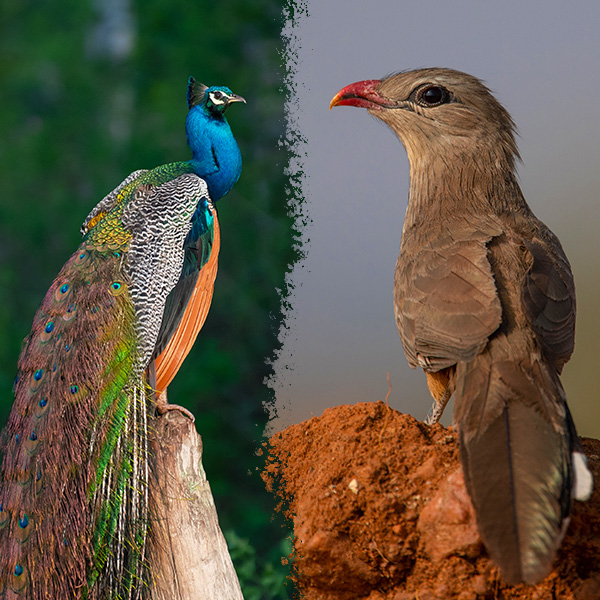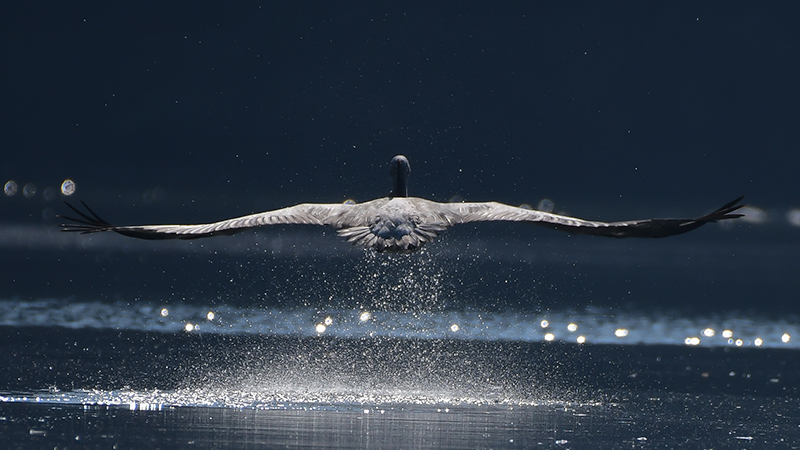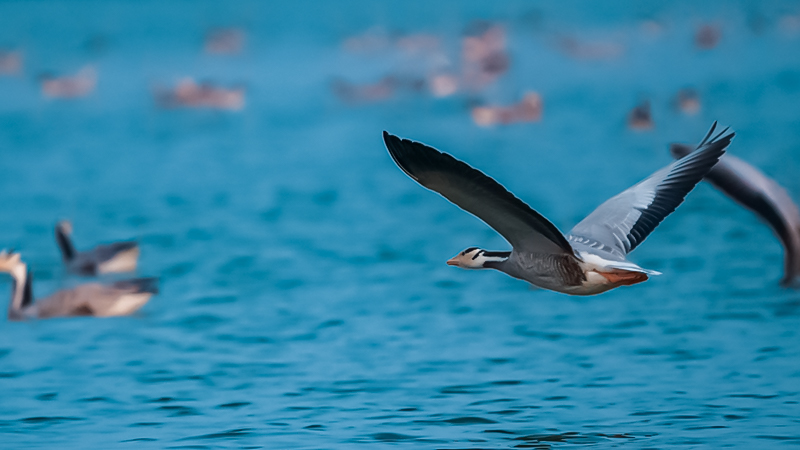
Birds in Karnataka Forests
Karnataka’s rich heritage and culture invite tourists, travelers, and researchers from all over the world but Karnataka’s forests, wildlife, birds, and natural habitat pulls travelers of all segments. Be it an adventure enthusiast, wildlife photographers, naturalists, nature- lovers even students and senior citizens flock towards Karnataka’s forest. Listen to the silence of forests or the roaring animals, feel the vibrations of gushing rivers and waterfalls, or get a thrilling forest jeep safaris ride, forests in Karnataka will never disappoint you. The flora and fauna are not just a few things people go there for, the birds in Karnataka forests also attract bird-watchers and bird photographers.
Forests in Karnataka account for nearly 23% of the state’s geographical land space accounting for almost 25% of India’s wildlife. Five national parks, including 30 wildlife sanctuaries and sixteen protected / community reserves, account for more than 100% of the state’s total. Karnataka has almost 600 species of birds in these forests. Blessed with a variety of habitats, Karnataka is home to more than 35 % of the bird species found in India. Karnataka is home to resident and migratory birds in three regions namely the coastline, the Western Ghats, and the Deccan Plateau. Birds in Karnataka stay for its warm environment, abundant water, sunshine, flora, and fauna, which is a welcome relief to the avian from the harsh winters back home.
Spread across 43,382 sq km, the forests in Karnataka are dense too. Birds in the forest of Karnataka are either migratory or permanent residents. There are 8 popular bird sanctuaries in Karnataka namely. Kokkarebellur, Gudavi, Adichunchunagiri, Bonal, Hornbills of Dandeli, Ranganathittu, Ghataprabha Bird Sanctuary, and Attiveri are home to these birds.
It is not so difficult to spot and capture these birds while you are in the forests of Karnataka. One needs to be patient and have a good amount of time when you are visiting bird sanctuaries in Karnataka.
Spot Billed Pelican- A migratory bird

Located at: Ranganathittu Bird Sanctuary, near Mysore Photo credits : Dr Vidyashankar P
A large pale waterbird with a hefty pinkish pouched bill marked with diagnostic dark spots on the upper mandible. The head is shaded with a hint of a shaggy crest with a dark back. The rings around the eyes look like a bird is wearing spectacles. Rings of bare skin around each eye make this bird look like it’s wearing glasses. Inbreeding plumage, the rump, sides, and underwing coverts are in pink and tangy yellow colours. Often seen near large lakes these Pelicans nestle in noisy colonies in trees bleached by droppings.
Malabar Pied Hornbill- Not a migratory bird

Located at: Dandeli Photo credits : Ananda Kumar
This large black-and-white hornbill is adorned with a huge bill and a casque. The plumage is almost black, except for a little white on the belly and the sides of the throat. During the flight, note their white tail with a black tip, the black wings with a thin white bar in the middle, and a thick white edge. It resides in evergreen and deciduous forests and forest boundaries. Its calls include a loud and often maniacal-sounding clucking and braying.
Bar Headed Goose- Migratory especially from Mongolia

Located at: Magadi Bird Sanctuary, Gadag Photo credits : Ananda Kumar
Striking and a distinctive goose with an unlike bold black-and-white head and the neck pattern has an orangey-yellow bill and legs. During the flight, it appears mainly pale grey with a broad black trailing edge to wings. The bird breeds around the lakes and marshes on highland plateaus; lowland wetlands and fields in winters. Native to East and South Asia, are seldom seen free-flying elsewhere in the world.
A Peacock – Not a migratory Bird

Located at: This picture is from Bandipur National Park Photo credits : Dr Vidyashankar P
Peacock is a National Bird of India and is commonly found in all forests and even in residential areas with a good green cover. Adichunchcunagiri Peacock Sanctuary is blessed with a gorgeous landscape in addition to all its stunning scenic attributes thus providing amazing backdrops for the splendid peacocks.








